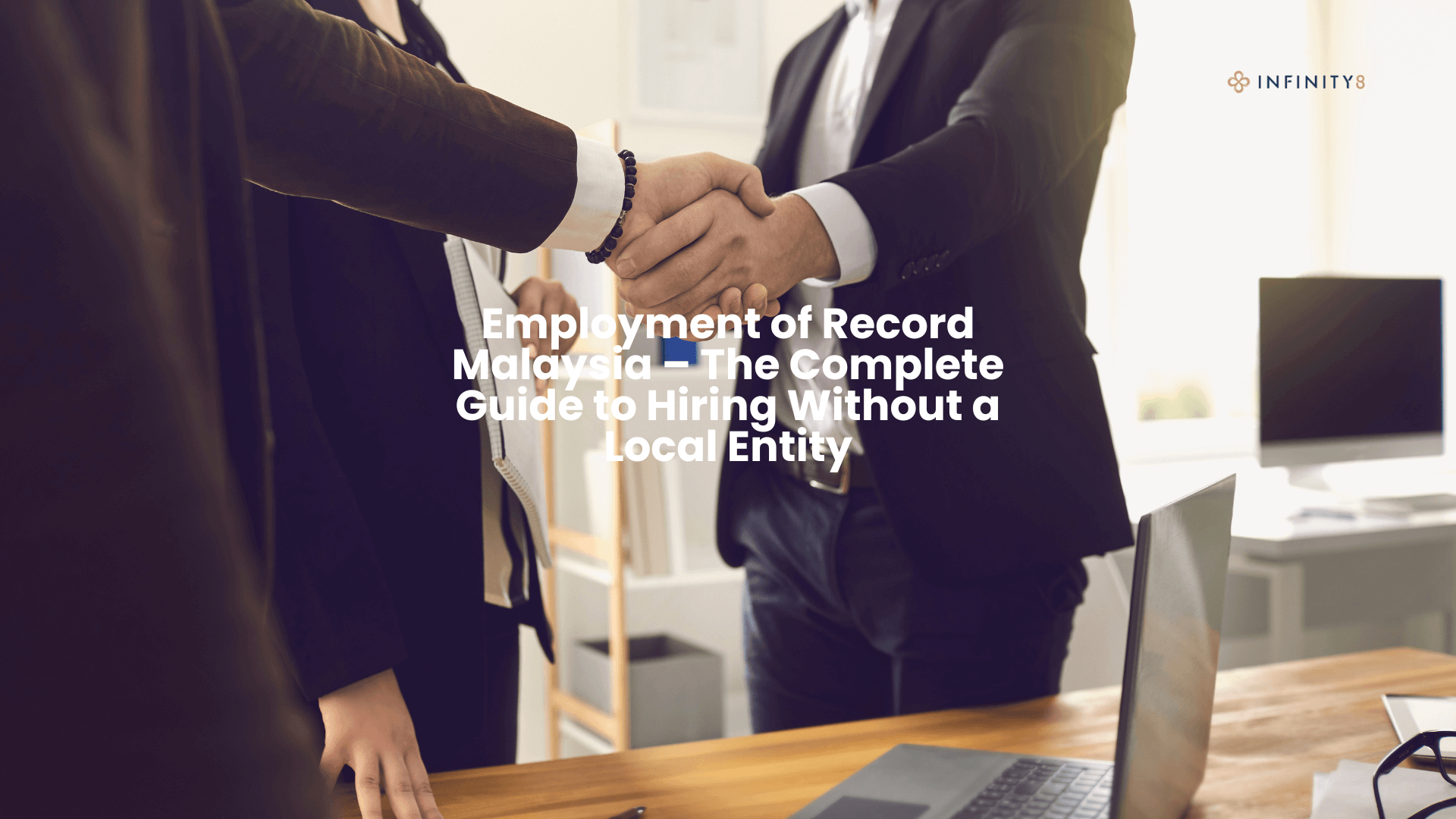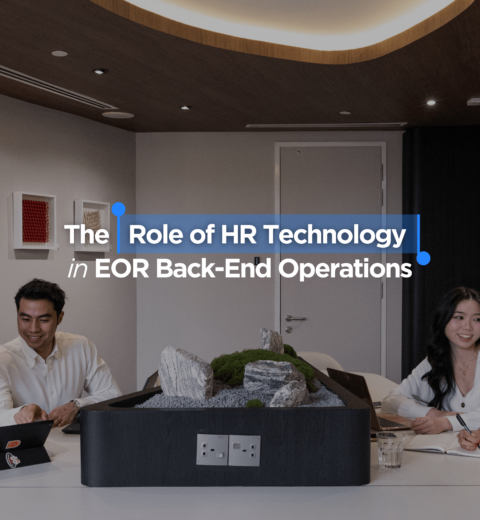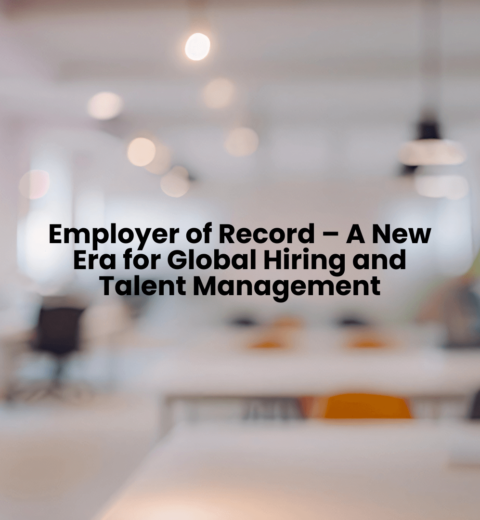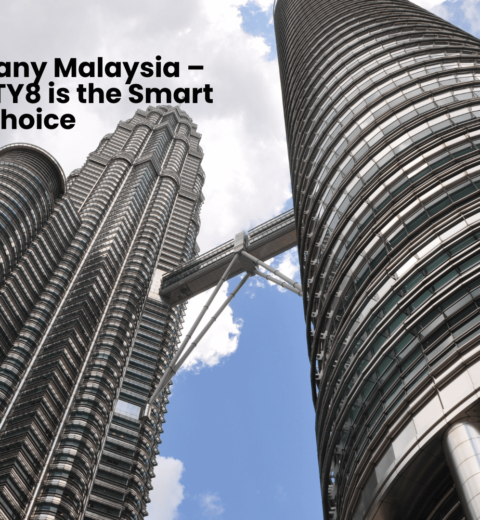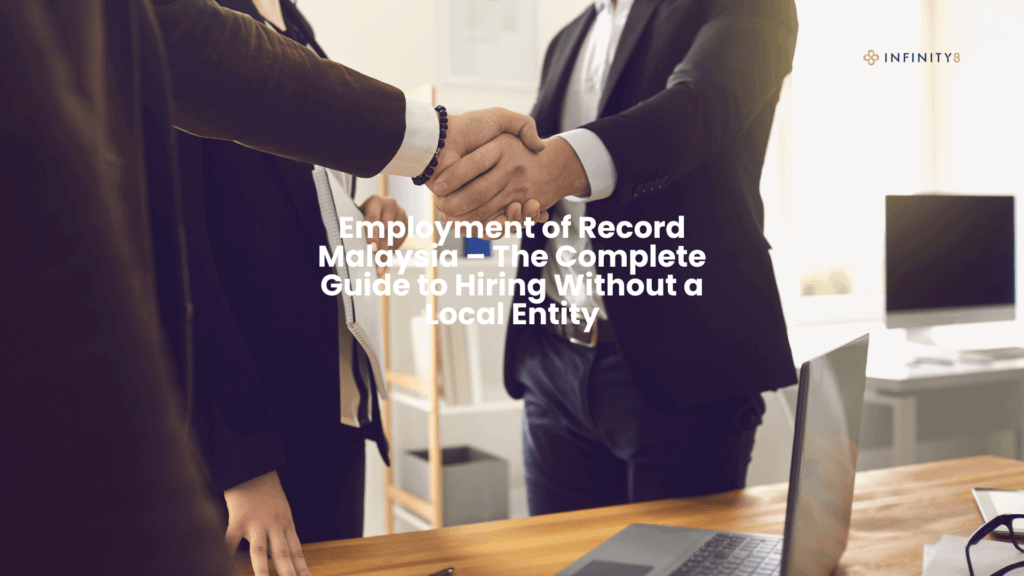
Looking to hire top talent in Malaysia without the hassle of setting up a local entity? Employment of Record Malaysia services let you seamlessly onboard employees, manage payroll, and ensure full compliance with local labor laws, so you can focus on growing your business. With our experience supporting global companies, the EOR model simplifies employment contracts, benefits administration, and statutory contributions like EPF and SOCSO for both foreign and local hires, reducing legal risks and administrative work.
In this ultimate guide, we’ll cover Malaysia’s employment laws, EPF and SOCSO requirements and step-by-step processes for compliant, efficient hiring across the country.
Employment of Record Malaysia: Key Laws and Compliance Requirements
The employment record of Malaysia is governed by a comprehensive legal framework designed to help both local and foreign employers hire talent while maintaining full compliance with labor regulations. Below are the core laws and procedures you must follow for compliant hiring in Malaysia:
- Employment Act 1955 Compliance
This Act sets the foundation for employment contracts, job scope, minimum salary (RM1,700/month effective February 2025), working hours (maximum 45 hours per week), annual and sick leave entitlements, rest days, and maternity allowance (minimum 98 days). It also regulates overtime pay, fair dismissal, flexible work arrangements, and gig worker protections, with coverage now extended to all employees. - Employees Provident Fund (EPF) Contributions
Employers contribute 13% (or 12% for wages above RM5,000), while employees contribute 11%. Starting October 2025, foreign employees with valid work passes will also contribute at a reduced rate of 2% each. EPF contributions must include fixed allowances. - Social Security Organisation (SOCSO) Coverage
SOCSO is mandatory for most employees (excluding domestic staff) and covers workplace injuries and invalidity. Employers contribute 1.75% and employees 0.75%, with the wage ceiling increasing to RM6,000 from October 2024. Foreign workers under 60 are now fully covered. - Ministry of Human Resources Oversight
The Ministry (KESUMA) updates and enforces employment laws, workplace safety regulations, and anti-harassment policies. Staying updated on these changes is crucial for any employer of record service operating in Malaysia. - Immigration, Work Permits & ePASS System
Foreign employees require valid work permits issued by the Immigration Department. Employers must secure quota approval and apply through platforms like MYXpats or ESD, ensuring all documentation is complete. Permits are role- and employer-specific.
From 2025 onwards, Malaysia has rolled out the ePASS system, which allows expatriates to renew Employment Passes fully online, removing the need for physical endorsements in passports. The ePASS is part of Malaysia’s digital transformation strategy, reducing paperwork, processing times, and manual errors. EOR providers now integrate onboarding with these digital systems, enabling faster compliance, smoother immigration management, and real-time tracking of renewals for foreign hires.
This structured framework ensures that employment agreements, payroll, statutory benefits (EPF, SOCSO, EIS), and workplace safety are standardized, minimizing legal risks while creating a fair employment environment for both Malaysian and foreign workers.
Key Benefits of Employer of Record Malaysia Services
Expanding into Southeast Asia can be seamless when you partner with a Malaysian EOR service. Based on our experience supporting global clients, here are the top benefits of using an employer of record Malaysia solution:
- Strategic ASEAN Market Access
Malaysia’s central location and membership in the ASEAN Free Trade Area provide access to over 600 million consumers. With an EOR, foreign companies can hire local talent without the complexity of establishing a legal entity, enabling faster market entry into neighboring countries like Singapore, Thailand, and Indonesia. - Cost-Efficient Hiring and Compliance
A Malaysian EOR streamlines recruitment, payroll processing, tax withholdings, and regulatory compliance. This allows businesses to quickly onboard skilled Malaysian employees or foreign hires while minimizing administrative costs and avoiding legal pitfalls. - Access to Government Incentives
Malaysia offers attractive tax incentives and grants, such as Pioneer Status and Investment Tax Allowances, for sectors like digital technology, manufacturing, and green energy. An EOR ensures you meet eligibility requirements and remain fully compliant while benefiting from these programs. - Diverse, Multilingual Talent Pool
Malaysia’s multicultural workforce, proficient in English, Malay, Chinese, and Tamil, supports global communication and innovation. This diversity fosters adaptability and inclusivity within your team. - Ideal Regional Logistics Hub
With advanced logistics infrastructure, free trade zones, and strategic port access, Malaysia is a prime base for regional supply chain operations and rapid e-commerce distribution across ASEAN.
By leveraging these advantages, the employer of record Malaysia services offer a fast, compliant, and cost-effective pathway for companies aiming to expand and thrive in Southeast Asia.
Potential Risks and Cost Considerations of Using an EOR in Malaysia
While EOR services offer speed and compliance, businesses should also weigh potential downsides before making a decision:
- Service Fees:
EORs typically charge a per-employee monthly fee (RM70 – RM150 on average) or a percentage of payroll (15–20%). For companies scaling beyond 20–30 employees, establishing a local entity may become more cost-effective. - Reduced Control:
As the EOR is the legal employer, companies may face limitations in customizing HR policies, benefits, or handling disciplinary actions directly. - Contractual Risks:
Ambiguous EOR agreements may cause challenges around intellectual property rights, employee loyalty, or termination procedures. - Transition Costs:
If the company later sets up its own entity, transferring employees from the EOR structure to the new entity involves additional legal and administrative steps. - Regulatory Updates:
Frequent changes in Malaysian employment laws, such as new EPF obligations for foreign workers, can lead to unexpected compliance costs if not managed properly.
Understanding these risks allows companies to compare EOR services against alternatives like establishing a subsidiary, contracting, or engaging a Professional Employer Organisation (PEO).
How Employer of Record Malaysia Operations Work
Wondering how Malaysian EOR services simplify hiring and compliance? Based on extensive experience and industry research, here’s a breakdown of how an employer of record Malaysia manages the entire employment process, so you can expand confidently without a local entity.
- Employee Onboarding & Legal Compliance
The EOR prepares legally compliant employment contracts, manages work permit applications for foreign hires, and registers all employees for statutory benefits. Every agreement, job scope, and HR policy aligns with the Malaysian Employment Act 1955 and current labor laws, ensuring smooth and compliant onboarding. - Accurate Payroll Processing in MYR
A Malaysian EOR handles monthly payroll in Malaysian Ringgit, covering salaries, overtime, and statutory deductions. This includes timely payment of income tax, EPF, and SOCSO contributions, removing the administrative burden from your internal team. - EPF & SOCSO Administration
EOR services enroll eligible employees in the Employees Provident Fund (EPF) and Social Security Organisation (SOCSO). Employers contribute 12–13% to EPF, while employees contribute 11%, with special rates for foreign staff. SOCSO ensures protection against workplace injury and invalidity, with recent updates now extending coverage to foreign workers. - Leave & Holiday Management
From annual leave to public holidays and sick leave, the EOR ensures entitlements comply with Malaysian labor laws. Proper tracking helps prevent disputes and guarantees transparency in employee benefits. - Ongoing HR & Employee Relations
Beyond compliance, an EOR supports performance reviews, employee feedback, and workplace policy updates. This strengthens employer-employee relationships and maintains a healthy, productive work culture.
By outsourcing these critical functions to an employer of record Malaysia, your business gains expert local HR support, avoids legal risks, and can focus on driving growth across Malaysia and the wider ASEAN region.
Malaysia-Specific EOR Considerations Every Employer Should Know
When navigating employer of record Malaysia solutions, employers must pay close attention to local labor laws, payroll regulations, and cultural norms to ensure smooth and compliant operations.
Key compliance areas include:
- EPF Contributions:
From October 2025, Malaysian and permanent resident employees contribute 11% and employers 12–13%. Foreign workers with valid passes must now contribute 2% each. - SOCSO Coverage:
Mandatory for most employees, with employer contributions at 1.75% and employee contributions at 0.75%. Coverage now includes foreign workers under 60, and registration must be done within 30 days. - Service Tax on Foreign Services:
An 8% service tax applies to most foreign-provided services, including EOR, unless exempt. Always verify with your provider. - Work Permit Regulations:
Ensure the correct permit type (Employment Pass, Temporary Employment Pass, or Professional Visit Pass). Keep renewals timely and compliant with MYXpats/ESD procedures. - Cultural Sensitivities:
Respect public holidays, religious observances (Hari Raya, Deepavali, Chinese New Year), and offer flexible leave. These are protected rights under Malaysian labor law.
Understanding these rules ensures both compliance and workplace harmony.
How to Choose the Right Malaysian Employer of Record
Selecting a strong employer of record Malaysia partner is crucial for compliance and long-term growth. Look for providers with:
- Deep Employment Act Knowledge:
Expertise in Malaysian labor laws, holiday calendars, and industry-specific requirements. - EPF & SOCSO Administration Skills:
Proven experience managing registrations, monthly payroll deductions, and statutory filings. - Work Permit & Immigration Support:
Strong capabilities in securing permits, managing quotas, and ensuring timely renewals. - Payroll Technology in MYR:
A reliable payroll platform that integrates with HR systems, provides compliance alerts, and offers employee self-service access. - Industry-Specific Experience:
A track record in your sector, whether manufacturing, logistics, or services.
Boost Your Business with INFINITY8’s Trusted EOR Service Malaysia
Looking to grow your team in Malaysia without the hassle of setting up a local entity? INFINITY8’s EOR service in Malaysia offers a fast, compliant, and cost-effective way to hire talent, manage payroll, and stay fully compliant with local HR regulations, so you can focus on scaling your business.
INFINITY8 has served over 2,000 companies and 100+ global clients, including 12 listed companies. Our Employer of Record (EOR) solution simplifies the process by providing comprehensive support, such as:
- Seamless Onboarding of new hires
- Monthly Payroll Processing & Disbursement in MYR
- Statutory Compliance with EPF, SOCSO, EIS & PCB
- Local HR Advisory & Employment Contract Management
Exclusive Launch Offer
Enjoy up to 50% OFF all HR services during our official launch period!
Transparent Pricing:
- RM70 per employee/month – HR & Payroll Services
- 18% of annual gross salary – Recruitment Services
- 15% of monthly salary – Full EOR Support
Whether you’re hiring remote employees, expanding in Malaysia, or managing a local team without a legal entity, INFINITY8 delivers scalable, compliant, and HR-accredited solutions. With our 24/7 support and industry expertise, your payroll, taxes, and benefits are handled seamlessly.
Contact us today for a FREE consultation and see how our EOR service Malaysia can accelerate your growth.

